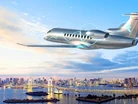Why is sustainable aviation critical in electric aircraft?

The path towards automotive electrification seems much clearer than that of aviation, which is why we’re taking the focus away from electric vehicles (EVs) for a second to talk about other sustainability initiatives.
In particular, those of hybrid and hydrogen aircraft, which make use of some of the most innovative technologies the industry has to offer.
The best way to look at these is through the Brazilian firm, Embraer, which recently unveiled two new aircraft concepts for the end result of decarbonisation.
The company holds a unique position to innovate through its regional aircraft development projects. The firm is already working on two different aircraft, one leveraging hybrid-electric technology, and the working with hydrogen propulsion.
“Guided by the company’s 50-year technical expertise, external inputs from airlines, and joint studies with engine OEMs, these two approaches to net-zero offer a technically realistic and economically feasible pathway to net-zero,” the company explains.
Hybrid-electric as a sustainable e-mobility solution
In the realm of hybrid-electric flight, the company’s efforts resulted in the Energy Hybrid E19-HE and E30-HE models. The number of each model represents the number of seats in each aircraft and the hybrid technology uses the power of both electricity and sustainable aviation fuel (SAF) to achieve 90% carbon emissions reduction.
According to Embraer, the hybrid-electric aircraft will be technology-ready in early 2030 and achieve the added benefit of reduced noise pollution, which is 60% less as a result of the hybrid technology.
Since its inception of renewable energy sources for its aircraft, Embraer has been conscious of the opportunities presented by new fuels and propulsion systems, which, before we know it, could be commonly used in air transport.
“I believe we have set bold but realistic goals for these concepts to come to market,” says Arjan Meijer, President and CEO of Embraer Commercial Aviation.
Reducing emissions with hydrogen propulsion
An alternative solution to hybrids is hydrogen propulsion, which requires a different method of action to its hybrid counterparts. Embraer is working on two similar sized models with hydrogen fuel-cell electric propulsion systems with aircraft range of at least 200 nautical miles.
With even lower noise production and zero emissions, the E19-H2FC and E30-H2FC allow the company to cover all bases of innovation.
As new propulsion technologies will be first applied on smaller aircraft, Embraer is in a unique position,” says the Senior Vice President of Engineering, Technology and Corporate Strategy, Luis Carlos Affonso.
“The 19- and 30-seaters are sensible starting points for focused studies since they are likely to present earlier technical and economical readiness. While the challenges of net-zero are significant, in less than 25 years our commercial aircraft have already reduced fuel [consumption] and CO2 emissions by almost 50% on a seat/mile basis, using only conventional fuels and propulsion—I’m convinced net-zero is a goal we can reach.”

